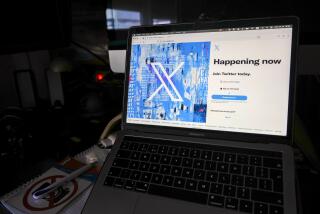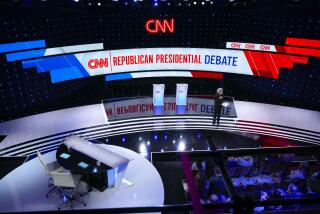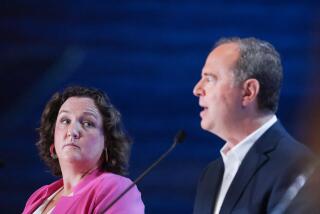In election swamped by secret money, corporations choose openness
Undisclosed political money is playing an outsize role in the 2012 election cycle. But as some political donors are seeking to hide their identities, a new study has found that at least one set of contributors — corporations — is increasingly opting for transparency when it comes to their political spending.
The study, released Tuesday by the nonpartisan Center for Political Accountability and the Zicklin Center for Business Ethics Research at the University of Pennsylvania’s Wharton School, examined the top 200 companies in the S&P; 500 and found that that almost 60% of them are disclosing at least some of their political activity.
Of the corporations evaluated in both 2011 and 2012, 85% have improved their disclosure and accountability scores. More than two dozen criteria were taken into account when awarding scores, including how corporations articulate their spending policies and how publicly they disclose their contributions to candidates, trade associations and 501(c)4 nonprofit “social welfare” groups.
Since the Supreme Court’s Citizens United decision in 2010, corporations have been able to engage in unlimited political spending.
“We’re encouraged that even when the stakes are highest, leading companies are refusing to engage in hidden spending. These companies are further establishing political disclosure as a corporate mainstream practice,” said Bruce Freed, president of the Center for Political Accountability.
Disclosure was once a relatively uncontroversial tenet of campaign finance law, even among conservatives who advocated for easing other finance restrictions.
INTERACTIVE: Spending during the 2012 election
But the matter of transparency has become increasingly fraught this election cycle, as nonprofit groups and trade associations powered by anonymous donors have become heavyweight political spenders. The Sunlight Foundation has found that two major nonprofit groups — Crossroads GPS and Americans for Prosperity — have spent a combined $174 million so far in the presidential race.
In the spring, the Center of Political Accountability was the subject of a withering column by the Wall Street Journal’s Kimberley Strassel, in which she accused the group of participating in “the growing liberal war against corporate free speech.”
Some corporations, however, approach disclosure as sound business practice.
“Given the issues related to the lack of corporate trust, the more corporations can do to be open and transparent and talk about how they participate in politics, the better,” said Dan Bross, senior director of corporate citizenship at Microsoft.
Microsoft earned high marks in the CPA-Zicklin study, ranking second behind the pharmaceutical company Merck. Other top scorers include the insurance company Aflac and the drug company Gilead.
Bross said that Microsoft sees political disclosure as a facet of good corporate governance and counsels other companies to pursue similar policies.
“Some have a fear of disclosure. I’ve tried to tell them, there’s nothing to be afraid of,” Bross said.
Follow Politics Now on Twitter and Facebook
Twitter: @melmason
More to Read
Get the L.A. Times Politics newsletter
Deeply reported insights into legislation, politics and policy from Sacramento, Washington and beyond. In your inbox three times per week.
You may occasionally receive promotional content from the Los Angeles Times.







